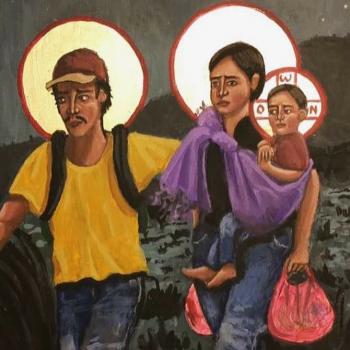I can’t recall ever taking so long or expending so much energy and patience to write a blog. But what I want to tell about Gulu – and more specifically about my experience and why I’ll hopefully never be the same – deserves more time, more editing, more energy. I want to give you the best of what they gave me, with as few errors or potholes of distraction as possible. 🙂
Or maybe I’m just an obsessively compulsive perfectionist. Wink, wink.
Either way, until THE blog is ready, I’ll share a few pearls I’ve threaded into a necklace I intend to wear daily.
The Acholi people (the largest tribe in the country, who occupy most of Northern Uganda, and who have for the past two years enjoyed the first tastes of peace after a 23 year civil war waged by Joseph Kony and the Lord’s Resistance Army) are eager and generous with their love and kindness. From daily half-a-block walks to and from the internet cafe marked by countless toothy grins and “How are you? I’m fine!”s, to giggling children who are simply overcome with joy by the fact that Mzungus (white people) want to hear them sing their songs and dance their dances, their love is an effortless and unconditional kind unlike anything I’ve ever seen. They expect and want nothing but a genuine smile.

Having all lost so much and so many to terror, violence, disease, and disaster, they know how fleeting a moment can be and embrace each with ferocious joy. It’s hard not to define them as a dizzyingly happy people, because it’s rare to see anyone without a smile. Even when they’re feeling ill and asking for prayer, they do it with a smile.
But still, you know they carry the burden of recent history and understand in a special way that life can change or end at any second, so if this one is good, it ought to be celebrated. And celebrate they do.
For me, just being an observer among them for a week was liberating. It may be because the economy won’t allow for it, or more likely because they just know better than to waste time with such pettiness, the Acholi have little time and patience for vanity. Clothes don’t match and are rarely perfectly clean. Cosmetics are an expensive luxury, one most refuse in favor of covering their feet or feeding their families. Self-expression through fashion or hair style seems unlikely, as their clothing is either the “imported” castaways from America’s thrift stores or made from cheap materials; and most men, women, and children alike wear short or shaved hair. It’s better to keep away lice and other bugginess. And deoderant? What’s deoderant?
I can’t describe how freeing it was to be among people who aren’t silently analyzing my fashion choices or checking my legs to see if they’re shaved. It was nice to know that if, after a long day of painting, my Secret was all worn off, no one would notice much less care. I’m white, so I’m going to I stand out. Any details beyond that aren’t worth following.
What’s more, I saw in them a desire simply to show us they’re kind and warm, forward-moving and modern; That they’re cheerful and can find beauty and humor in nearly anything; That they’re resourceful and creative, hard working, intelligent, and most of all good. They love and crave God and His goodness. They have much more to offer than war. They want to learn and teach. They want to create.
Above all, they are a community-driven people. They’ve all lost family and friends to war, so they ferociously grip the relationships they now have as a life source. It was rare to see anyone walking anywhere alone. And in the evenings, when most Americans are holed up in their giant homes on acres of “private property” watching fake lives play out on flat screen TVs, safe from the annoying distractions of other humans, the Acholi are hanging out and enjoying one another. One evening, we saw a group of at least 50 people gathered around one small TV for a major soccer event! They don’t go home until the restaurant’s generator is turned off and they’re sent away. And whether they’ve known you for years or you’re meeting for the first time, they treat you as a kindred soul and intimate friend. Even the Mzungus.
The children are no different. Whether walking home from school in groups, navigating the market for dinner, giving you the tour of their school or orphanage, or selling sugar cane across the street, they’re quick to extend a hand to shake and even quicker to offer a wide grin to a stranger. I guess, to them, no one is a stranger.
Quite simply, they want to love and be loved.
They were concerned not with appearances – with impressing us with fancy clothes or fresh scents, huge hotel suites, or five-star meals (though they did an incredible job at making our stay as comfortable and upscale as possible within the context of their culture) – but with making us, the Mzungus, feel welcome, comfortable, and at home.
And I did. I felt as at home with them as I ever have in America.
Toward the end of the week I took a moment to sit down with Judith, one of the hotel staff who seemed to rather enjoy my silliness and my inability to speak their language correctly despite both our efforts. She thought my self-depricating jokes were hilarious. She liked that I wore crazy-looking shirts. And, pulling me aside, she said, ‘Miss Ahh-mee, you are very down to ground. Most Mzungus don’t like us…they think we’re bad and useless, just full of war and disease. But you…I like you. And I like that you like me.” I told her she was quite easy to like, and she liked that too. We both decided we were soul sisters, and that one of us – most likely me – was just born the wrong color and on the wrong continent.
One of our team later told me that Judith told him I’m actually African.
And recalling that makes me miss my other home, my other family, even more.











